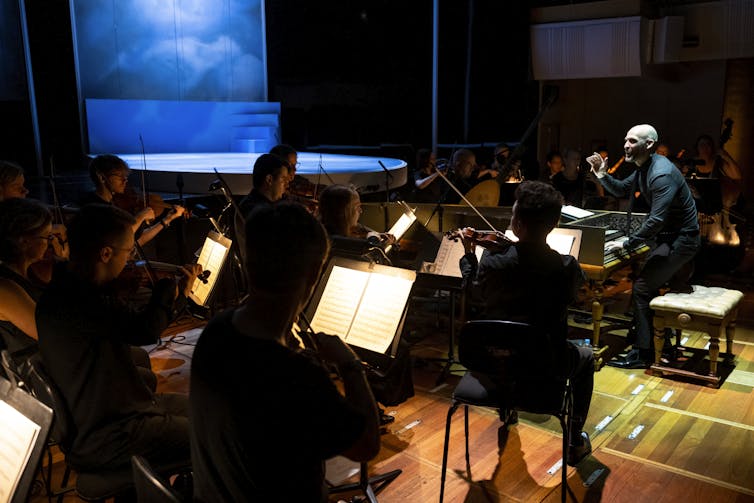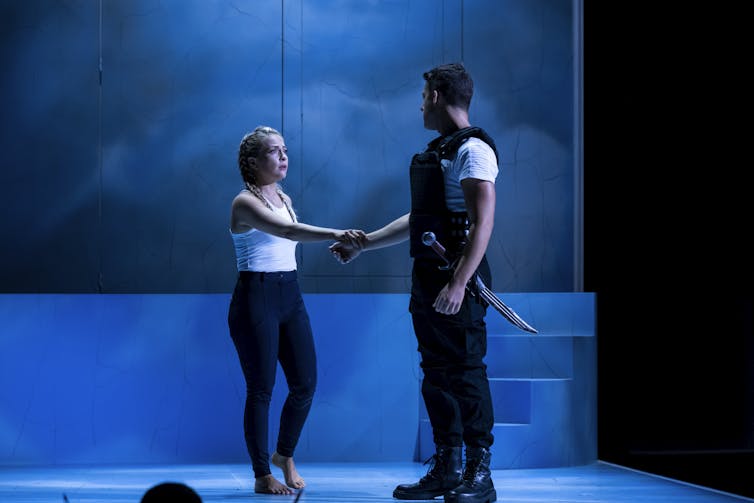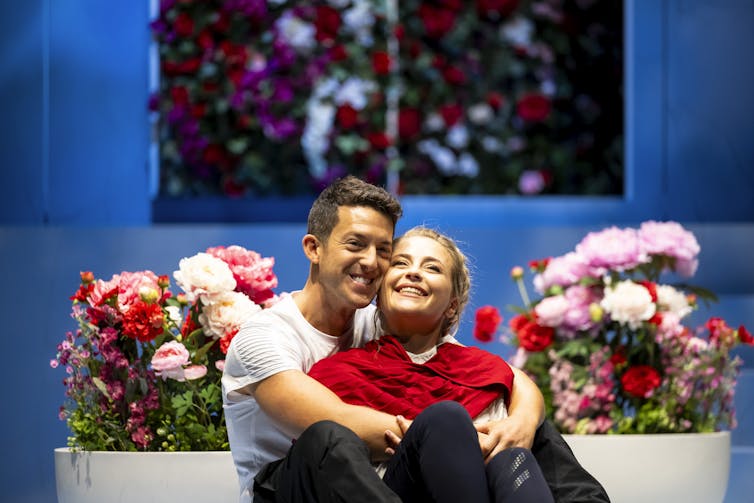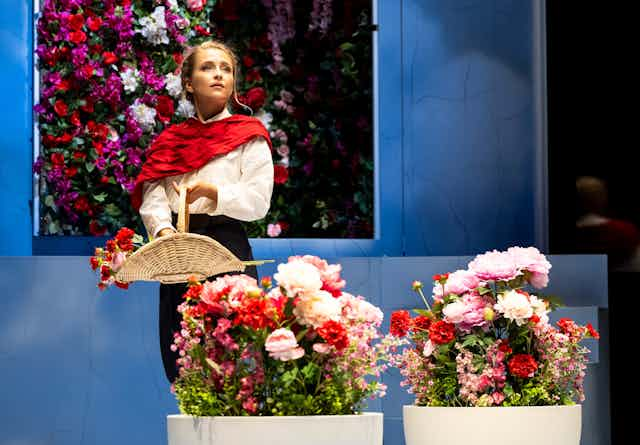Sydney-based Pinchgut Opera is internationally praised for research-driven revivals of baroque opera gems with an acute attention to historically-informed interpretation of the music.
In this production of Rinaldo, composed by Handel in 1711, they deliver a rare synergy of historical and contemporary elements, bringing to the stage a story about how conflicts can be resolved without bloodshed.
When the company embarked on producing Rinaldo in 2020, little did they anticipate the narrative they wanted to bring to the stage would coincide with another escalation of conflict in the Middle East.
Although there are no explicit references to the current conflict, the dramatic text originally set in the area around Jerusalem during the First Crusade, offers a valuable perspective on fostering empathy by acknowledging the shared humanity in our adversaries.
The plot does not commence with combat but with lengthy elaborations on the inner world of the characters. In their opening arias, the warriors on opposing sides eloquently express their love and dedication to the women they hold dear. This display of intimate sentiment humanises them.
Jake Arditti charms the audience from the start with Ogni indugio d'un amante (To a lover every day) as the Italian hero Rinaldo on a crusade to reclaim Jerusalem from the Saracens.
In his opening aria Sibillar gli angui d'Aletto (All around I seem to hear), the Saracen king of Jerusalem Argante sings not of the precarious situation. Portrayed by Adrian Tamburini with a warm bass voice and commanding presence on stage, this aria sets in motion a complex character who turns away from violence.
Combat occurs only toward the end, where a twist in the story leads to an unexpected resolution through good will – and not divine intervention as usually happens in baroque opera.
Read more: The singing was great – but what was it about? Why opera companies should explain themselves better
A multi-sensory immersion
Rinaldo integrates historically informed baroque music of the highest standard into a contemporary performance. The acting is emotionally charged and grounded in detailed discernment of the dramatic text.
Directed by Louisa Muller, the singer-actors achieve an internalised characterisation and organic bodily movement authentic to the emotion and intention of each character.

Muller’s production is set in today’s world anywhere there could be military conflict. The contemporary staging and costumes by Simone Romaniuk – mostly in black, grey, blue and white – and lighting design by Verity Hampson exude a subtle splendour and allow the voices and acting to take centre stage.
Ascending steps lead to a blue-sky mountain top. Lighting and mirror effects create the uncanny world of the sorceress and set in motion her magic spells. Birdsong and baskets of flowers bring to life a pastoral love scene between Rinaldo and Almirena.
Conducted by Erin Helyard, the Orchestra of the Antipodes features baroque experts who deliver the most exciting turn of phrases and sonorities in a dramatic interplay between voices and orchestra.

The vocal mastery and fresh ornamentation are not mere display. The vocal performances are centred in believable and enchanting emotions.
Such a balance between visual and auditory elements, both honouring and overcoming the generic specifics of baroque opera and the strong rapport with the audience, sets a new standard in Australian baroque opera performance.
Magical moments
Each scene is flawlessly executed, progressing towards its individual climax and sustaining the emotional tension until the stylised sword battle at the end.
Jake Arditti (Rinaldo) and Alexandra Oomens (Almirena) wear very simple modern costumes (an innocent white singlet for Almirena and white T-shirt for Rinaldo), their bodies somewhat vulnerable yet free to move.

They portray the attraction between the two lovers more realistically that we normally see in opera with passionate kisses, romantic teasing and sexual tension, as well as silent acting and outcries of anguish. Their vocal prowess allows them to mould and shape the complex phrases and convey even the smallest of inflections with ease.
Arditti and Oomens both stop the clock and the breaths of the audience as they give full expression to the desperation of their characters in the two famous arias, Cara sposa (My dear betrothed) and Lascia ch'io pianga (Let me weep).
Oomens’s Almirena enchants Argante with evocative pleading in Lascia ch'io pianga, rendering her soft strength irresistible. Highly anticipated, both arias offer novel musical interpretations underscored by authentic connection to the text.

Arditti’s full-bodied countertenor triumphs in the final Or la tromba in suon festante (The jubilant sound of the trumpet), complemented by Lianne Sullivan’s exuberant baroque trumpet playing.
Soprano Emma Pearson performs Son vinta (I am conquered) with nuance and human fragility prompting a burst of applause. Her rendition of Armida is magically powerful, and the stylised movement of her arms and hands adds an effective touch to the representation of the supernatural.
Randall Scotting as Goffredo, the leader of the first crusade and father of Almirena, emanates nobility and dignity through effortless singing and serene demeanour that are very difficult to achieve.
Emotionally charging, believable and thought provoking, Pinchgut Opera’s Rinaldo brings to the stage a spectacle of war and magic where love prevails, delivers great aesthetic pleasure and achieves a rare organic connection between musical and visual storytelling.
Rinaldo is at the City Recital Hall, Sydney, until December 6.

